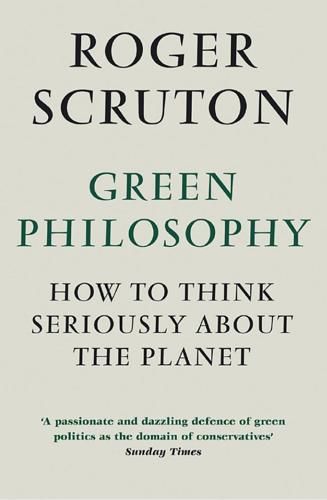
Green Philosophy: How to Think Seriously About the Planet
by
Roger Scruton
Published 30 Apr 2014
Already in Britain the Countryside Restoration Trust and the Family Farmers Association are advocating a subsidy-free agriculture, which will remove the advantages enjoyed by the big polluters and the agribusinesses. Small farms run by hobby farmers and organic producers as yet account for only 3 per cent of farm produce in the USA, but the proportion is growing; journals and clubs catering for hobby farmers are springing up across the country, and the local food movement is gathering momentum.373 There is a new interest in ‘permaculture’, with a Permaculture Association providing courses and a Permaculture Magazine with an increasing number of subscribers.
…
Nevertheless, it is to offer confirmation of the thesis of this book, which is that environmental protection comes from the oikophilia of people, and not from those who use money, influence and political power to impose large-scale projects from on high. The efforts of civil associations are sometimes dismissed as the work of middle-class ‘nimbys’ and hobby farmers, and we need to bear that sceptical attitude in mind. It resonates in many people today and there is a truth contained in it. It is part of living properly that one should love one’s surroundings; and it is part of love to resist unprecedented change. But we cannot base our policy towards the past on mere resistance.
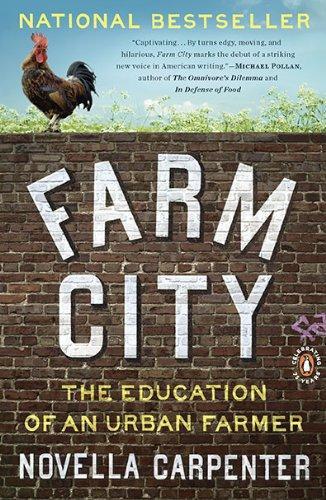
Farm City: The Education of an Urban Farmer
by
Novella Carpenter
Published 25 May 2010
“Chris hates it when people come to the front of the restaurant and want to sell him stuff,” Samin explained. “But you said you had two pigs,” Chris said, “so I had to talk to you.” Chris told me that he had thought I was some kind of rich-lady hobby farmer who lived in some rural area and wanted advice on raising pigs. When he met me and realized I was some poor hobby farmer from the ghetto, he was intrigued. I had to give something back. One day I slipped the pastry chef a wrapped package of Little Girl’s feet. She yelled in delight: She was going to make a special stuffed Chinese pork recipe that her grandmother used to make.
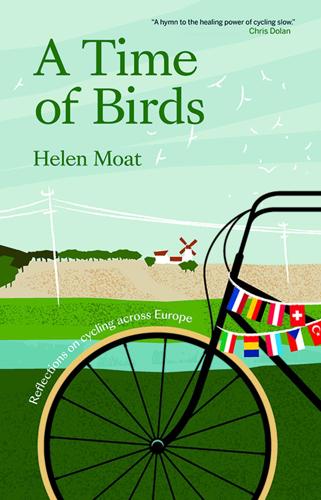
A Time of Birds: Reflections on Cycling Across Europe
by
Helen Moat
Published 26 Mar 2020
Behind the house, he installed hens to provide us with eggs, but despite his best efforts to keep the chickens safe, a fox returned night after night to pick them off – leaving a trail of bloodied feathers across the garden until every last hen had been taken. My father kept a pair of heifers, too, in the fields that straddled the farm track. It was a chance for him to have a go at being the hobby farmer he’d always dreamed of. But this project was equally doomed as the cattle escaped the fields on a regular basis. He called my brothers to help him round them up and herd them back to their own field. Giving chase again and again, the cattle didn’t put on much beef and made little or no money at market.
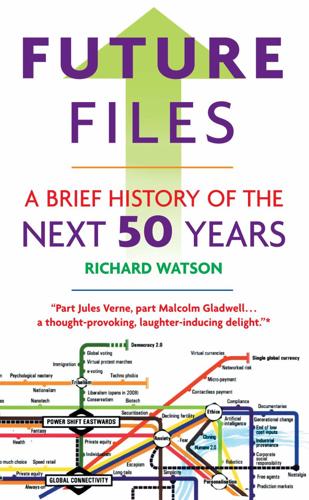
Future Files: A Brief History of the Next 50 Years
by
Richard Watson
Published 1 Jan 2008
Indeed, by the year 2050 if this trend continues, most inner cities will be made up almost entirely of rich singles, wealthy families and gay couples with high disposable incomes and liberal political persuasions. Some might say they already are. The rural areas that still exist will be populated by rich hobby-farmers interspersed with downshifters, smartisans and digital nomads. But it’s not just the cities that are changing. In 1950, 80% of US households comprised the traditional husband, wife and one or more children. Now it’s under 50%. The rest are singles and samesex couples (increasingly with kids). There are also blended families — mother, father, plus two or more children from different relationships or marriages — and extended financial families, homes with more than one generation living under the same roof.
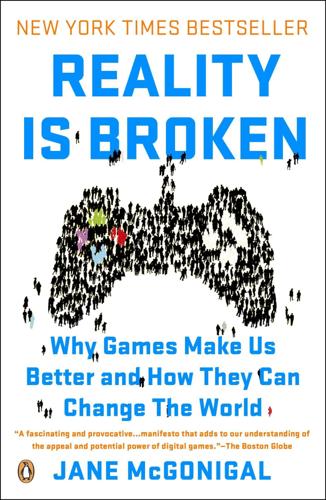
Reality Is Broken: Why Games Make Us Better and How They Can Change the World
by
Jane McGonigal
Published 20 Jan 2011
Most players were in their twenties or thirties, but there were notable clusters of every age group, from teenagers to seniors. And our most active players brought together an astonishingly diverse range of personal concerns and real-life expertise to the game. For example:• Peakprophet, a self-described “hobby farmer” in Tennessee, who forecast the collapse of the fresh-food supply chain—and then took it upon himself to train other players how to grow their own food and increase their food self-sufficiency. • Lead_tag, a soldier stationed in Iraq, who blogged every single day of the game, creating a series of thirty-two reflections on the challenges of fighting a war during an oil crisis
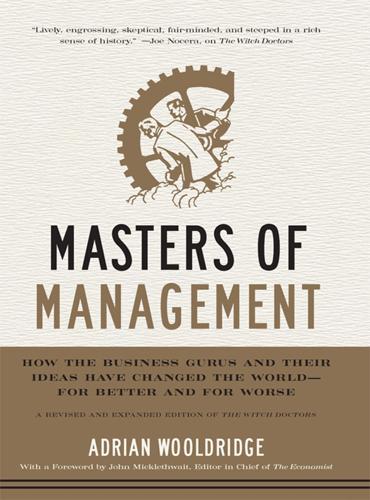
Masters of Management: How the Business Gurus and Their Ideas Have Changed the World—for Better and for Worse
by
Adrian Wooldridge
Published 29 Nov 2011
Shetty is building a 2,000-bed hospital in the Cayman Islands, a short flight from Miami, where he will offer surgery at half the price charged by American hospitals. But the trend is apparent in consumer goods, too. Haier has become the market leader in the West for cheap fridges. Most Western carmakers are producing small, inexpensive vehicles that have been influenced by the Nano. Mahindra & Mahindra’s nifty little tractors are popular with hobby farmers and gardeners in America. John Hagel and John Seely Brown have predicted that the emerging world’s advance will lead to a serious “blowback” in the West: rich-world companies that exported capitalism to developing countries may soon find themselves humbled by more innovative companies from the East, and rich-world voters, who once regarded globalization as a plus, may eventually turn against it as they see one product market after another tuned upside down.4 Yet it is important to remember that disruption will bring benefits as well as problems to rich countries.
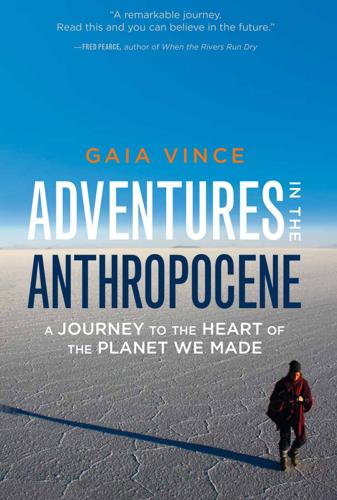
Adventures in the Anthropocene: A Journey to the Heart of the Planet We Made
by
Gaia Vince
Published 19 Oct 2014
There is already a new field of urban ecology for scientists who study the city and biophysical interactions within it in a similar way to traditional ecosystem research. Vertical gardens and farms are also being planted, although the energy involved in irrigating and maintaining them makes them impractical for food production on a larger scale. However, growing food in the urban environment on regular multistorey plots is likely to increase as hobby farmers, beekeepers and specialist growers take advantage of cleaner air, water and soils of Anthropocene cities, and vacant sites are used more effectively. In Berlin, rooftop fish farms have been started, with the waste going to feed agricultural plots in the city. Creative growers are already converting industrial spaces, street corners and rooftops to micro-wildernesses or manicured into formal gardens.
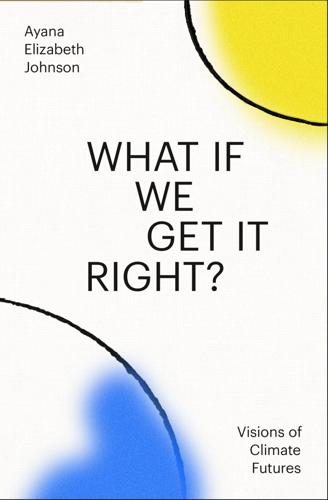
What If We Get It Right?: Visions of Climate Futures
by
Ayana Elizabeth Johnson
Published 17 Sep 2024
There are still people doing mixed-husbandry agriculture on a medium scale, but it takes a powerful community to support you to do that. It’s important to note that most farmers in America are part-time farmers. Ayana: A lot of them are also truckers or teachers or contractors or something. Brian: Yeah. Not just the quasi-hobby farmers like we are, but even commercial large-scale farmers often have other jobs to help support themselves. And they’re usually a couple. One part of the couple typically has a full-time job as well. Farming can be a range of things for different kinds of people. Ayana: On the topic of who owns the land and how people who want to farm can afford land, you’re an advocate for land trusts.